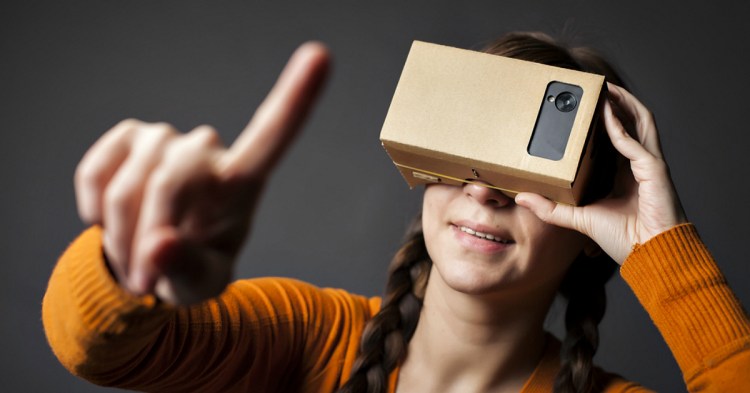Google confirmed to VentureBeat late Tuesday that Clay Bavor, VP for product management and one of the execs behind Google Cardboard, will head up the company’s virtual reality team.
The confirmation comes after Re/code sparked a frenzy of reporting on the move Tuesday.
“We can confirm Clay’s new role on the VR team, but we are not providing any additional comment at this time,” Google spokesman Joshua Cruz told us in an email.
The appointment of Bavor is seen as a sign of Google’s greater commitment to developing its own VR tech, a potentially lucrative field that, by all appearances, is soon to be dominated by Facebook’s Oculus, HTC’s Vive, and Sony’s Playstation VR — all expected to launch this spring.
Microsoft is working on augmented reality tech with HoloLens, though that’s estimated to still be at least half a decade away.
Arguably, Google’s real push into VR is also years from seeing the light of day — virtual reality startup Magic Leap (which received a $542 million investment round led by Google back in October 2014) is keeping fairly quiet about its progress.
In its coverage of Bavor’s appointment, The Wall Street Journal interpreted the move as a signal of Google’s attempt “to keep up with some of its rivals in the rapidly expanding world of virtual reality.”
Meanwhile, Reuters noted that “Google has been flirting with virtual reality, but never quite fully dived into it until now.”
As for Google Cardboard, in just the past few months, the company has released a virtual White House tour and launched a Cardboard Camera app for making 3D panoramas with your Android phone.
It also gave away Star Wars-themed viewers in the runup to the release of The Force Awakens. And in November, Google made every YouTube video compatible with Cardboard (though we found the experience still underwhelming).
In one of its biggest marketing wins, the New York Times partnered with Google in October to give out more than one million free Cardboard viewers. But Oculus founder Palmer Luckey isn’t impressed: He compared Cardboard to “muddy water” last month, while calling Oculus “fancy wine.”
Cheeky. Perhaps Bavor will help change that.
VentureBeat's mission is to be a digital town square for technical decision-makers to gain knowledge about transformative enterprise technology and transact. Learn More

